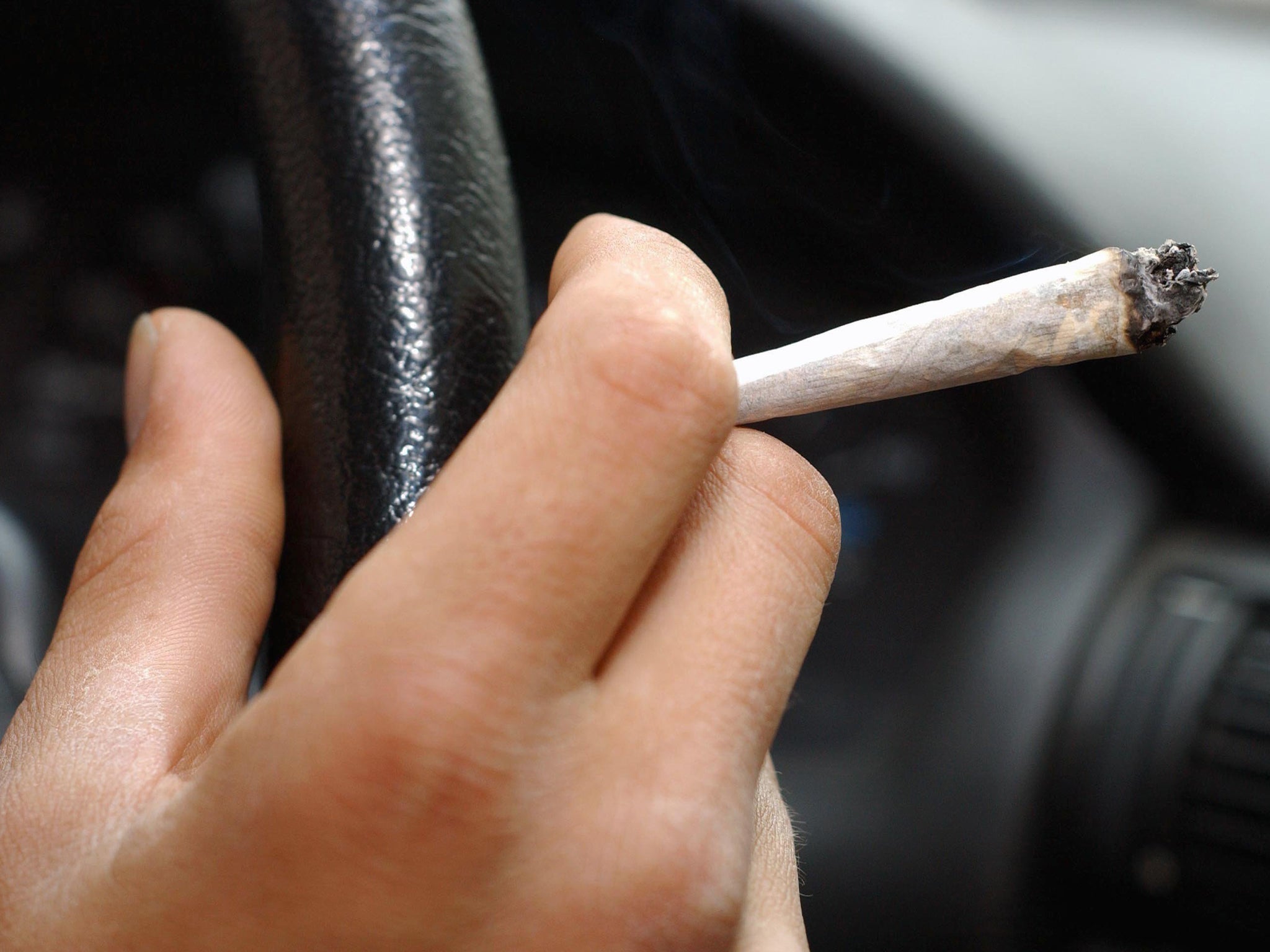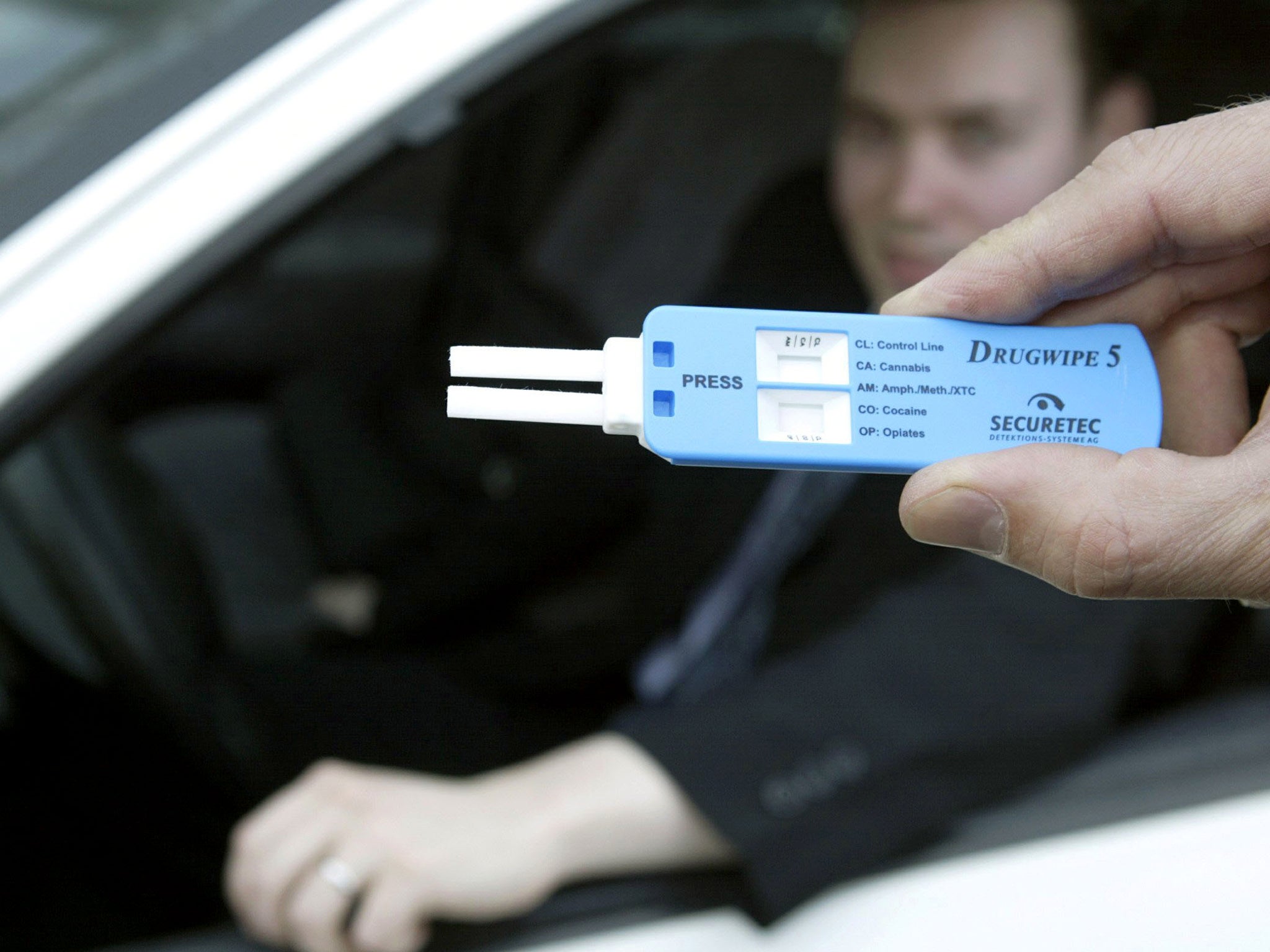Drug drivers believe it is more acceptable than drink driving, according to Government study
Drug drivers believe their abilities behind the wheel are not seriously impaired by taking substances such as cannabis, cocaine and MDMA

Your support helps us to tell the story
From reproductive rights to climate change to Big Tech, The Independent is on the ground when the story is developing. Whether it's investigating the financials of Elon Musk's pro-Trump PAC or producing our latest documentary, 'The A Word', which shines a light on the American women fighting for reproductive rights, we know how important it is to parse out the facts from the messaging.
At such a critical moment in US history, we need reporters on the ground. Your donation allows us to keep sending journalists to speak to both sides of the story.
The Independent is trusted by Americans across the entire political spectrum. And unlike many other quality news outlets, we choose not to lock Americans out of our reporting and analysis with paywalls. We believe quality journalism should be available to everyone, paid for by those who can afford it.
Your support makes all the difference.People who take drugs before getting behind the wheel of a car believe it is a “much more acceptable” thing to do than driving while drunk, according to a Government study.
Drug drivers believe their abilities behind the wheel are not seriously impaired by taking substances such as cannabis, cocaine and MDMA and that in any case they are unlikely to be stopped by police, the research found.
The scale of drug driving is difficult to calculate as statistics are not always recorded, but research suggests that levels are similar to drink driving.
It is estimated that people driving while under the influence of drugs may account for as many as 200 deaths a year in the UK.

The research, commissioned by the Department for Transport (DfT), was based on in-depth interviews with people who said they had drug-driven in the past year. Their friends, some of whom had been passengers, were also asked for their opinions.
Some believed that smoking cannabis actually calmed them down before getting behind the wheel, making them less likely to have an accident, while others said cocaine made them feel more alert and attentive while driving. Most agreed that while drink driving was socially unacceptable, driving while on drugs did not carry the same stigma.
One young man from Brighton, who said he regularly drove after smoking cannabis, told the focus group: “We do it every day. We just roll one for the way back [from work] and share it as we go along.
“We know it is wrong, but you know it isn’t that wrong. It seems normal.”
The law on drug driving in England and Wales was tightened last month, giving police powers to test for cannabis and cocaine through a saliva swab at the side of the road. Those found guilty face up to six months in jail, a £5,000 fine and an automatic year-long driving ban.
Reacting to the findings, AA president Edmund King said: “It is worrying that drug drivers don’t think they are as dangerous as drink drivers. For some this may be because their drug use is a lifestyle choice so they don’t consider the consequences. We need to get the message out there that drug driving is as dangerous and socially irresponsible as drink driving.”
He added that in Glasgow, drug drivers had previously tried to avoid detection by drinking half a pint of lager before getting in the car, reasoning that if they were stopped by the police they would pass a breath test. The prospect of a roadside drug swab would prevent this from happening, he argued.
Philip Goose, senior community engagement officer at the road safety charity Brake, added: “The research conducted by the Government suggests that people see drug driving as more acceptable than drink driving, and that the threat of being caught by the police was not enough to put them off.
“The new drug driving law ought to make them rethink. Anyone tempted to drive on drugs should be in absolutely no doubt of the penalties they face for endangering people’s lives and that it simply isn’t worth the risk.”
The DfT declined to comment on the study, but when the new law came into force last month, Road Safety Minister Robert Goodwill said he was confident it would “save lives”, adding that driving under the influence of drugs “devastates families and ruins lives”.
Join our commenting forum
Join thought-provoking conversations, follow other Independent readers and see their replies
Comments